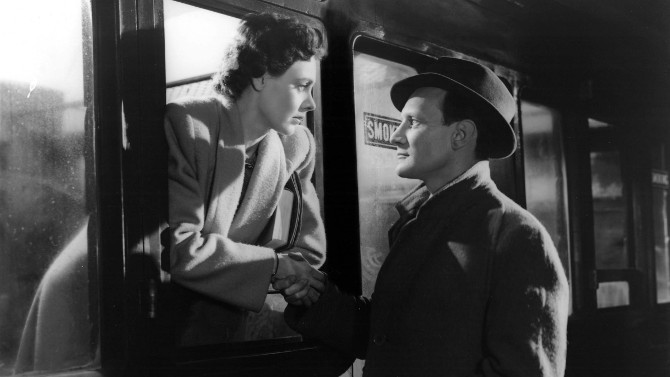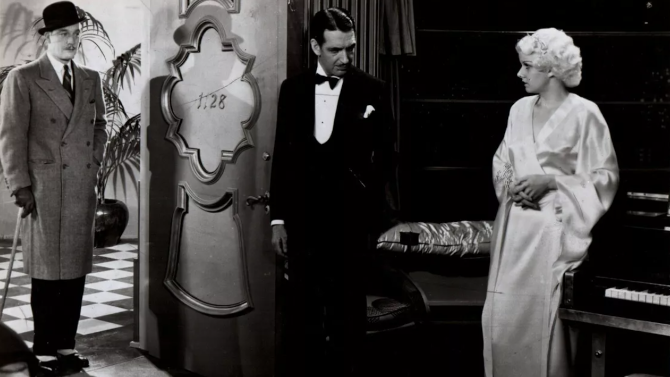
Wise Gals
It’s funny how things have changed so much over the years, but at the same time, human beings seem to have changed so little. Single men complain about women, while single women complain about men just as much... something discussed quite frequently in the romantic dramedy Three Wise Girls (1932), directed by William Beaudine and based upon Wilson Collison’s novel “Blonde Baby”. Cassie Barnes (Jean Harlow) is a small town soda jerk... and with her shapely body and platinum blonde locks, she attracts all the wrong kinds of men. Having had enough of the lecherous men back home, she makes the move to New York City, quickly finding work (and a whole new crop of creeps) while working the ice cream and soft drink game.
-
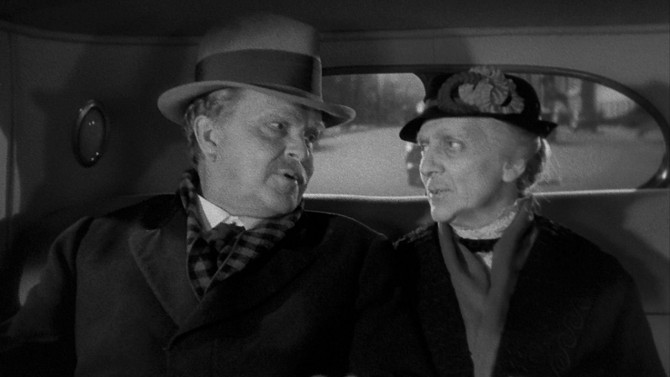
Here Today, Gone Tomorrow
Make Way for TomorrowNovember 11, 2016Upon winning Best Director at the Academy Awards for his 1937 screwball comedy The Awful Truth (the highest grossing film of the year), Leo McCarey took his Oscar, turned to the applauding crowd and uttered the unusual acceptance of "I want to thank the Academy for this wonderful award . . . but you gave it to me for the wrong picture". The movie he was talking about was the powerfully emotional drama Make Way for Tomorrow. A bust at the box office, the film still brought recognition to one of the premier filmmakers of the era. Being a favourite of John Ford, Frank Capra, Jean Renoir, Ernst Lubitsch, George Bernard Shaw and Orson Welles (who called it one of the saddest films ever, claiming that "it would even make a stone cry"), as well as being the inspiration behind Yasujirô Ozu’s classic 1953 picture Tokyo Story, this is a pure piece of emotional film making. Funnily enough, though praised by iconic filmmakers and ardent film fanatics alike, it is probably one of the least known motion pictures out there. Nearly unseen, thankfully Criterion has released it, providing the movie with an avenue to finally reach a larger audience.
-
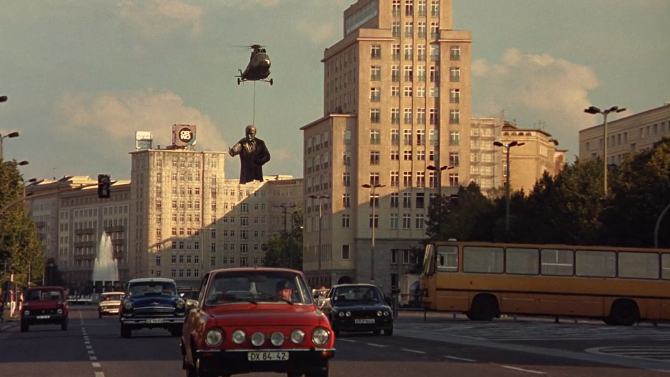
“Mr. Gorbachev – Tear Down This Wall”
Good Bye Lenin!November 6, 2016It would be hard not to argue that the fall of the Berlin Wall was one of the most iconic moments of the last thirty years. Dividing families, separating a city, forming a chasm between the Western and Eastern world; the Berlin Wall was a symbol of the borders that we, as humans, put in our own way, blocking us from achieving unity and peace. The fall of the wall was an empowering and supremely positive event, and Wolfgang Becker’s 2003 film Good Bye Lenin! is a heartfelt motion picture that builds an intriguing family centred story around the iconic happening. Narrated by Alex (Daniel Brühl), a twenty-something who lives in Berlin on the east side of the wall, he transports us through a tumultuous year in his family’s life. With a father that fled to the West without his wife and children, Alex has grown up with a mother, Christiane (Katrin Saß), who has become married to the Socialist Fatherland. An idealist and ardent patriot, she is enamoured with the system that she lives within. Alex’s older sister, the quirky Ariane (Maria Simon) also lives with them (she has an infant daughter).
-
Star Pick with Keir Dullea
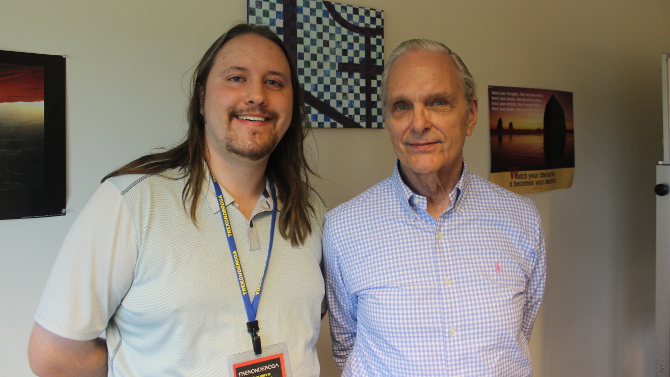 Train in VainBrief EncounterOctober 18, 2016
Train in VainBrief EncounterOctober 18, 2016Whilst attending Trekonderoga, the Ticonderoga comic convention that is all things Star Trek, on August 13th, 2016, I was fortunate enough to be able to interview Keir Dullea. Best known for taking on the starring role of Dr. Dave Bowman in Stanley Kubrick’s iconic space epic 2001: A Space Odyssey – he reprised the character for the film’s 1984 sequel 2010: The Year We Made Contact. Dullea has played a variety of intriguing roles over his six plus decades in the industry, getting his first lead role in 1962's David and Lisa, the actor then went on to star in 1964's The Thin Red Line, Otto Preminger’s 1965 mystery Bunny Lake is Missing, 1974's Black Christmas (often considered to be the genesis of the slasher horror film genre), and Robert De Niro’s 2006 flick The Good Shepherd, to name but a few of his film credits. The man actually highlighted a small Canadian film that he made back in 1973, titled Paperback Hero (also known as Last of the Big Guns), as being the favourite film he has worked on to this point.
-
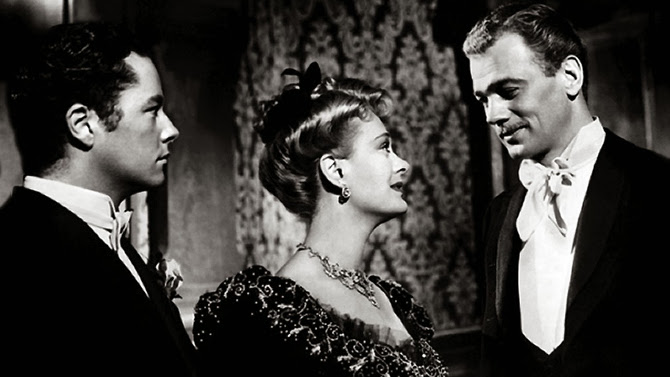
All That Glitters is Not Gold
The Magnificent AmbersonsSeptember 30, 2016Depicting the slow decline of a wealthy family, Orson Welles’ follow up picture to Citizen Kane, 1942's The Magnificent Ambersons, provides us with a melancholic reflection on how the more simple life of the nineteenth century transitioned into a more hurried, less enjoyable one as the new century was ushered in. We are transported into the socialite world of the Ambersons, a well-to-do American family living in the then small city of Indianapolis. Residing in a gargantuan mansion, the family sit at the top of the food chain when it comes to the pecking order in the area. Welles provides the voice-over narration as he introduces us to the family, including Isabel (Dolores Costello), daughter of patriarch Major Amberson (Richard Bennett), a young lady who is being courted by the thoughtful Eugene Morgan (Joseph Cotten). After a disastrous attempt at performing a serenade for her, the romantic man is shunned by the young debutante – she sees his failure as an ominous sign.
-
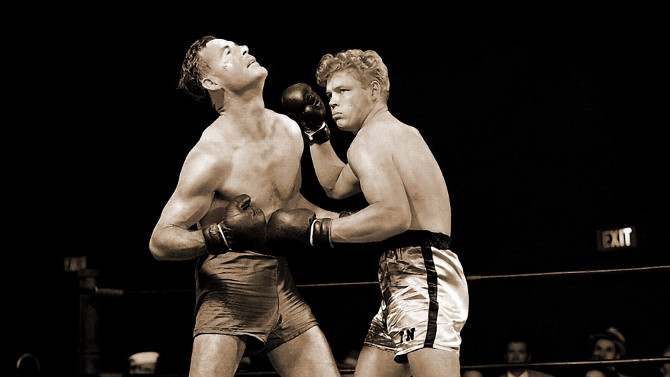
Ring of Lies
The Set-UpSeptember 24, 2016Containing two of the big time film noir players, 1949's The Set-Up follows down and out boxer Stoker Thompson (Robert Ryan) as he prepares for his next bout. Ryan, who starred in 15 film noirs throughout his career, perfectly encapsulates the aging veteran, with his domineering height, craggy athletic look, and pained eyes that show the seemingly endless struggles he has had in the ring. His long suffering wife, Julie, is played by Audrey Totter. The dame, who passed away back in 2013 at the age of 95, took on 14 very different roles in the bleak genre. The attractive blonde is less femme fatale in this one, this time showing her range as the pained woman who can no longer watch her husband take beatings night after night.
-
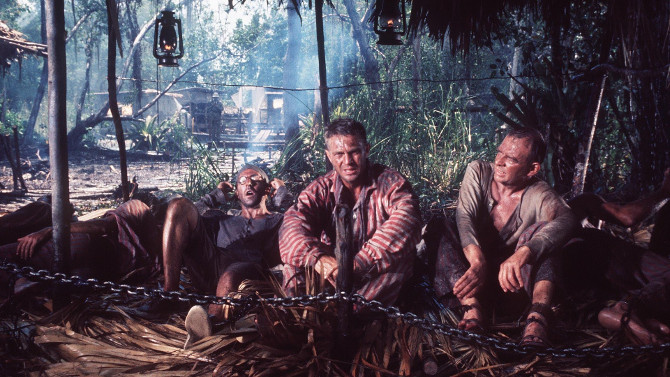
Prison Break, McQueen Style
PapillonAugust 21, 2016There are certain actors that have the ‘cool’ factor. Not the easiest thing to define, there is just something about their larger than life personas that attract us to them. One such actor is Steve McQueen. It seems that each role he chose further expanded his reign as a cool cat, with films like The Great Escape and Bullitt helping fuse together his characters with the real person – creating an image of a man’s man whose tall lean frame drove muscle cars through San Francisco during the week while escaping from Nazi concentration camps on the weekend. Another motion picture that epitomizes his persona is the 1973 prison drama Papillon. Based on the autobiography by French convict Henri Charrière, director Franklin J. Schaffner (Patton/Planet of the Apes) takes us on an epic ride as Charrière, whose moniker is Papillon (McQueen), as he has a vivid tattoo of a butterfly that can be found on the middle of his chest, is placed on a ship departing from France.

